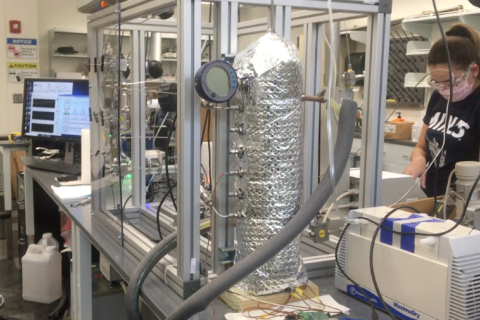
Although low commodity price-related struggles have significantly slowed the pace of exploration, several companies are progressing programs, having struck oil this year north of the Falkland Islands, Egypt, Kenya, Pakistan and deepwater Brazil, to name a few.
Yet despite recent oil finds, which include a potential basin-opening discovery, the world could be facing an oil supply shortfall of 4.5 million barrels per day (MMbbl/d) in less than 20 years as the overall number of liquids discoveries drop and money woes push companies toward low-cost, smaller near field opportunities. This is according to Wood Mackenzie, which released a study April 27 shedding light on what could happen if exploration results fail to improve.
The volume of liquids discovered has plummeted from about 19 billion barrels (Bbbl) from 2008 to 2011 to about 8 Bbbl from 2012 to 2015. Figures from the firm showed only 2.9 Bbbl of liquids were found in 2015 worldwide.
“Existing discoveries do of course have a key role to play in future global oil supply, but unless exploration results start to improve significantly, continued supply growth will become unsustainable,” Patrick Gibson, director of global oil supply research for Wood Mackenzie, said in a news release.
The analytical firm predicts production from fields discovered since 2000 will be in decline by 2030, contributing to the forecasted shortfall, if the annual average of 8 Bbbl of discovered liquids continues.
“This is why the size and nature of the next tranche of discoveries is crucial for maintaining long-term global oil supply growth,” Gibson said.
Today’s oil price environment has prompted companies to cut exploration budgets, among other areas, in search of savings to salvage profits as market forces work to shrink the supply-demand gap. The firm acknowledged the more than 7,000 conventional field discoveries made since the early 2000s.
But “modeling a continuation of poor exploration results shows that the market could see a 4.5 MMbbl/d shortfall by 2035,” Gibson said.
The discoveries may only be enough to satisfy medium-term needs.
“Substantial volumes of oil from these finds are still to be produced—around 90% of the liquids discovered—which should ensure supply growth in the medium term,” added Andrew Latham, vice president of exploration research for Wood Mackenzie. “Conventional exploration success during the 2000s could add 18 MMbbl/d by 2025, in addition to increasing tight oil recovery.
“However, the shift in the industry’s focus towards exploring smaller near field opportunities with lower cost bases and shorter lead times, now means that fewer large, high risk frontier finds are likely to be made in the near term,” Latham continued.
Not helping the situation are exploration budgets, which Wood Mackenzie said are at levels half of that seen previously.
“We currently expect the industry to invest US$40 billion per year in exploration and appraisal over 2016 to 2018, less than half its investment during 2012 to 2014,” Latham said.
The study, which was based on information on conventional fields discovered since 2010 in the firm’s proprietary database, came as oil and gas companied continued releasing first-quarter 2016 results and giving insight into future spending plans.
Statoil, which made two small discoveries on the Norwegian Continental Shelf in the first quarter, on April 27 said it plans to spend about $2 billion on exploration in 2016. This is down from about $3.9 billion in 2015. For the quarter, Statoil’s exploration expenses were down to $280 million from $351 million a year ago.
Total reported its exploration investment fell 43%, compared to first-quarter 2015.
But the search for oil has not stopped, and some have not closed the door on new frontiers.
This year’s reported exploration hits include Premier Oil’s Isobel-1. The re-drilled exploration well on the Isobel/Elaine structure north of the Falkland Islands confirmed a play-opening oil discovery and uncovered more oil. Falkland Oil and Gas Ltd. and Rockhopper Exploration are partners in the development.
Statoil and partners Repsol Sinopec Brasil and Petrobas said April 18 that they struck oil in Brazil’s deepwater Campos Basin.
Velda Addison can be reached at vaddison@hartenergy.com.
Recommended Reading
Going with the Flow: Universities, Operators Team on Flow Assurance Research
2024-03-05 - From Icy Waterfloods to Gas Lift Slugs, operators and researchers at Texas Tech University and the Colorado School of Mines are finding ways to optimize flow assurance, reduce costs and improve wells.
Fracturing’s Geometry Test
2024-02-12 - During SPE’s Hydraulic Fracturing Technical Conference, industry experts looked for answers to their biggest test – fracture geometry.
Defeating the ‘Four Horsemen’ of Flow Assurance
2024-04-18 - Service companies combine processes and techniques to mitigate the impact of paraffin, asphaltenes, hydrates and scale on production—and keep the cash flowing.



